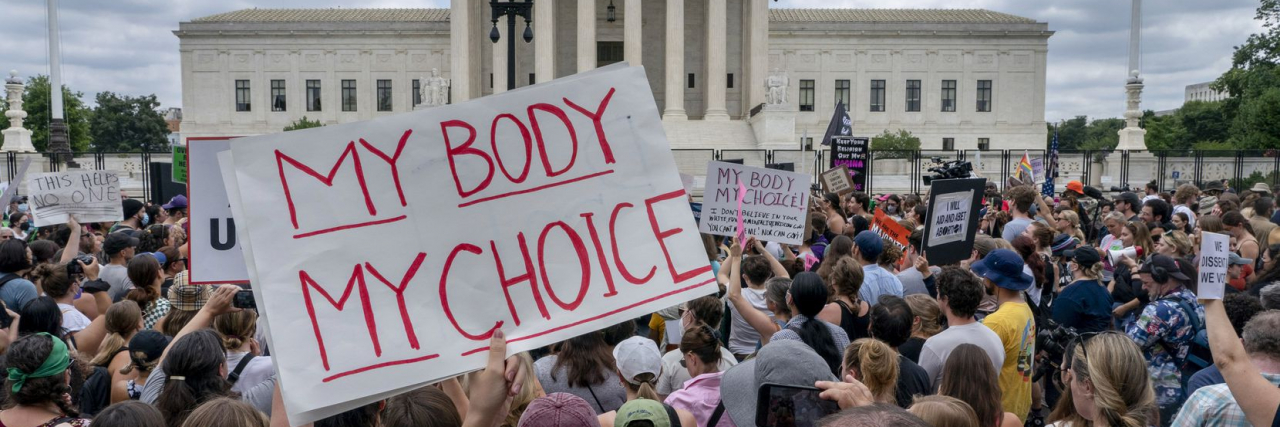Is the Supreme Court's Decision to Overturn Roe v. Wade Impacting Your Mental Health? Mine, Too.
This past Friday, the Supreme Court made the decision to overturn Roe v. Wade; the constitutional right to an abortion which was established nearly 50 years ago. This ruling will make it so each state has the freedom to decide whether to restrict or ban abortion, as opposed to it being federally protected, which it has been since 1973. Thirteen states have already passed so-called trigger laws to automatically outlaw abortion in the aftermath of the ruling, and many more states are likely to follow suit.
The decision to reverse abortion rights has been met with both triumph and anger. On Friday, thousands of demonstrators formed across the country. An array of individuals with conflicting stances on the decision clashed in city streets as they celebrated or protested the Supreme Court ruling. This ruling is undoubtedly going to further fuel the political divide in this country, with polarized news outlets chomping at the bit to weave it into their biased narratives. Oh, what a time to be alive.
If the constant discussion about the overturning of Roe v. Wade is leaving you mentally and emotionally drained, you are not alone. The mental and emotional health of many Americans has been in a state of decline for the past 2+ years during the COVID-19 pandemic, and the new ruling has the potential to only worsen it. In their statement, the APA expressed “deep concern and profound disappointment” regarding the Supreme Court’s decision, citing decades of research on how the denial of abortion can negatively impact one’s mental health.
Restricting or banning abortion will undoubtedly increase emotional, physical, psychological, and financial stress for anyone with the ability to become pregnant. It also has the potential to increase the severity of existing mental health conditions and leaves one susceptible to the emergence of new conditions. To make matters worse, government funding and resources for mental health care are nominal at best.
While there will continue to be access to abortions in about half the states in the country, the ability to travel to these states is not feasible for all individuals. Many populations in need of abortion services do not have the means or the resources to do so. The division between socioeconomic classes will be even more pronounced, which is just another factor that will contribute to poor mental health. Programs such as Elevated Access can help individuals access abortion in legal states, and need your support.
The uncertainty and stress regarding the future of reproductive rights are bound to push many people into psychological crises. Therefore, it is important to preemptively create a strategy to manage your mental health. A 10-step action plan can be found here.
In need of an updated list of abortion resources, now that your current list may be null and void? Check out this list.
Want to make a difference but don’t know where to start? Think about donating to local abortion funds or independent abortion clinics.
And remember, you are not alone.

